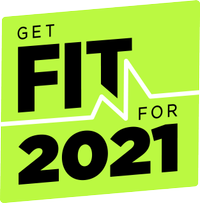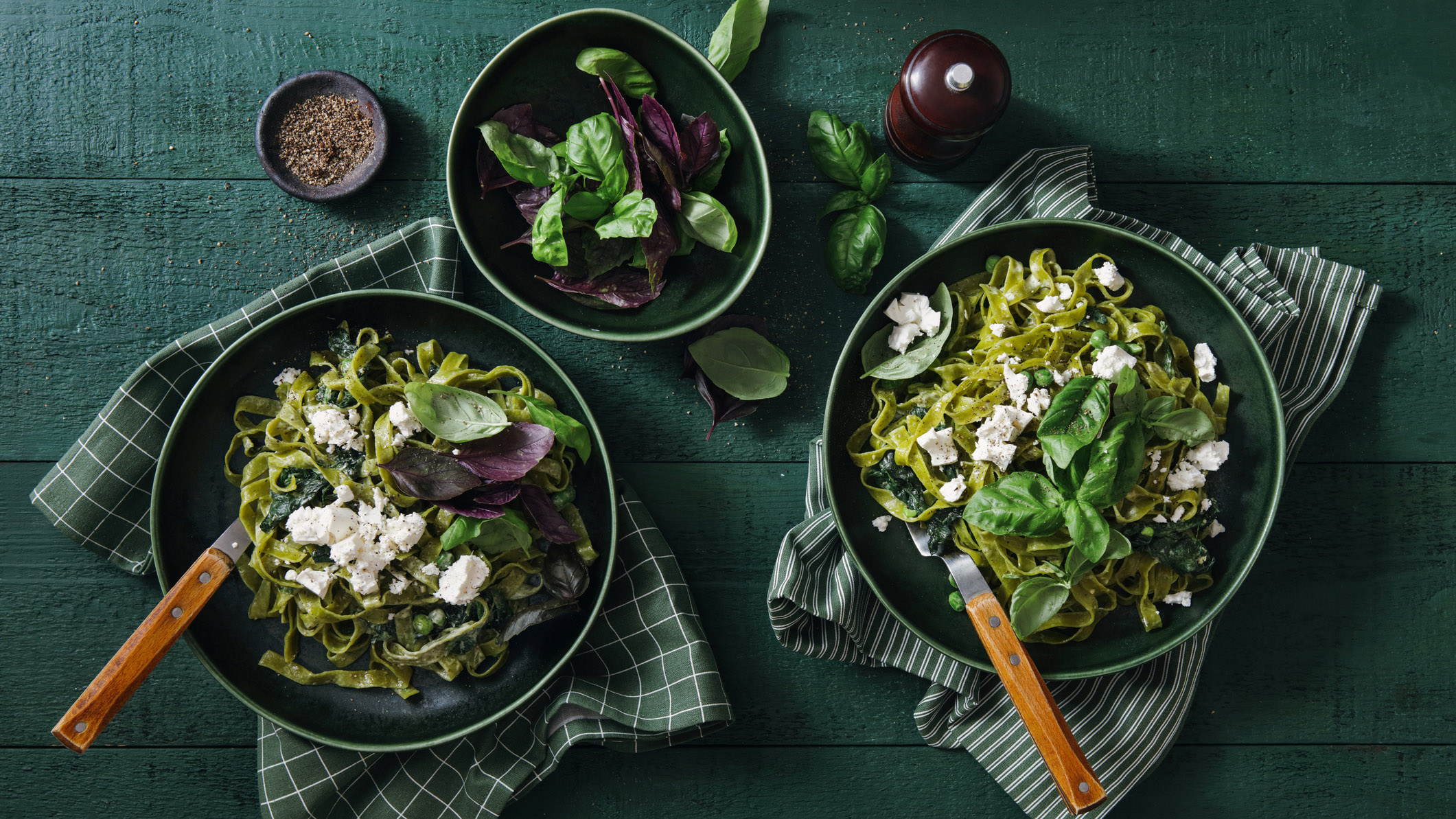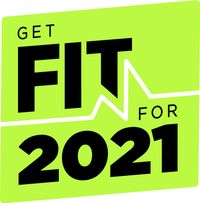Eat yourself happy: Nutritionist explains how eating right can reduce stress, improve mood and more
A healthy, balanced diet can do so much more than just help you lose weight: improve mood, reduce stress and improve gut health with food



We all know that exercising is a great way to improve mood as during workouts, our bodies release serotonin, the 'happiness hormone'. You are probably also aware that having a healthy, balanced diet can help you lose weight and boost metabolism too. But what you might know is that you can reduce stress and improve mood by eating the right type of food. Is it possible to eat yourself happy?
Few people are likely to turn to diet and nutrition as a way to combat poor mood. The link between mental health and nutrition is well underestimated, however increasing evidence suggests that good nutrition can significantly support mental health. The food we eat can impact a number of mechanisms involving neurotransmitters, hormones and other biological processes in the body.
To help us better understand the effects of our diet on our mental health, we asked James Collier, Head of Sustainable Nutrition and co-founder at Huel, to explain the ways in which food affect our mood and how we can use this knowledge to take better care of ourselves.

Why do we like bad food the most?
Most importantly, why do we get hungry? Biology lesson time!
There are two hormones that play a major role in when and how much we eat: leptin and ghrelin. A research paper published in 2006 in Obesity Review tells us that "Leptin is a mediator of long-term regulation of energy balance, suppressing food intake and thereby inducing weight loss. Ghrelin on the other hand is a fast-acting hormone, seemingly playing a role in meal initiation."
Basically, the body produces ghrelin to make you hungry and leptin when it's time to stop eating. It's important to understand that ghrelin is a signal hormone and it activates in regular intervals to remind you to eat. It is essential for us to eat and the body secretes ghrelin when you usually have food. It doesn't mean you need to eat straight away: ghrelin levels drop after a while, regardless if you have food or not. This is why you can feel really hungry but not eat and when you actually get around to eat, you aren't hungry anymore.
Leptin has an opposite effect to ghrelin: it signals when the system is 'full' so you stop eating. Leptin signals are slightly delayed so it is beneficial to eat slower to allow the body to react to nutrients.
Get all the latest news, reviews, deals and buying guides on gorgeous tech, home and active products from the T3 experts
Another hormone to mention here is dopamine. Dopamine is a neurotransmitter that gives rise to positive feelings of pleasure. As James explains, "Dopamine causes us to seek pleasure and start ‘hunting’ for food, which these days, when food is available in abundance, means running to the snack cupboard for a chocolate biscuit.
Not only this", he adds, "but dopamine causes our brain to remember how pleasurable the chocolate biscuit was, causing us to want to eat it again and ultimately chasing foods that give us the highest dopamine surge. That’s why, when we feel stressed or sad, we seek foods that will give us the most pleasure and comfort eat.”
James’ top tip: Try incorporating turmeric into your diet, such as in curries or even a latte. Its active ingredient, curcumin, has been found to increase levels of dopamine. And if you are finding yourself reaching for the biscuits too often as your body tries to chase down a dopamine surge, then it is worth relooking at what you’re eating more generally in the day. Opting for satiating foods at lunchtime will help keep ghrelin, the hunger hormone, at bay.
A happy gut will make you happy, too
We already mentioned serotonin earlier and it's time to return to the subject of the 'happiness hormone'. According to hormone.org, "Serotonin is the key hormone that stabilizes our mood, feelings of wellbeing, and happiness" but "Serotonin also helps with sleeping, eating, and digestion."
“It’s possible for some of us to have lower levels of serotonin, due to aspects such as our genetic makeup or adverse life events, however good nutrition can be beneficial in increasing serotonin levels and stabilising moods", James says, "Foods rich in omega-3 fats, low-GI carbs and soluble fibre have been shown to increase serotonin levels. "
GI refers to 'glycemic index' and "it shows how quickly each food affects your blood sugar (glucose) level when that food is eaten on its own", as defined by the NHS. High-GI food 'spikes' blood insulin levels and are generally recommended to reduce the amount of these in the diet. Low-GI foods are a different story.
As James explains, “low GI foods will give you sustained energy and stabilise your mood throughout the day, rather than high GI foods (like cakes and sweets) which will make both your energy and mood crash. Recent evidence has also found that most of the serotonin in our bodies is produced in the nervous system, such as that of the intestines. This is partly linked to the gut microbiome, so looking after this with soluble prebiotic fibres and probiotics could have a bigger impact on your happiness than you may think.”
James’s top tip: For a hit of omega-3 fat, low-GI carbs and soluble prebiotic fibre in one meal, try a mix of chia seed and oat porridge for breakfast, or salmon, lentils and green beans for dinner.
- What is testosterone: MD explains all commonly asked questions about the T hormone
- What are macros and how they can help you lose weight more efficiently than counting calories

De-stress eating
As well as hormones, certain micronutrients can a significant impact on how we feel and think. One of these is magnesium, and as James explains, "its main function in the body is energy regulation, muscle and nerve function. However, there is some evidence to suggest it plays a role in regulating stress too. Low levels have also been associated with anxiety, whilst those who have been found to supplement with magnesium have shown mood stabilising effects."
Interestingly, a study called "Anxiety and stress among science students. Study of calcium and magnesium alterations," published in 2006, found that students undergoing stressful exam conditions had increased amounts of magnesium in their urine, suggesting that magnesium plays a role in the body’s stress response and levels are ultimately left lower. "Scientists agree more research is needed, but as dietary intake of magnesium has been shown to be insufficient in Western populations, there’s no harm in upping our intake”, Jason concludes.
James’s top tip: The Recommended Dietary Allowance for magnesium in the United KIngdom is 300 mg for men and 270 mg for women. A 50-gram serving of spinach contains around 40 mg of magnesium and one avocado provides 58 mg.
- NGX DNA test offers tailored workout nutrition to help YOU build muscle more efficiently
- Atlas Health microbiome test: improve your gut health, tackle obesity and reduce risk of illnesses with this AI-powered app
Huel Black Edition, 24 meals (2 bags) | Buy it for £55.56 directly from Huel
Huel Black Edition contains 50% less carbs and 33% more protein compared to the 'standard' Huel powder, ideal for muscle building. It has zero artificial sweeteners and is naturally gluten-free, all the while containing all 26 essential vitamins and minerals, essential fats, fibre, and phytonutrients.

This is part of T3's Fit for 2021 programme, which will be running throughout 2021 to get everyone fit and healthy. We aim to bring you tips on diet, lifestyle and exercise that will help you shape up for what is certain to be a challenging year for many. One thing we can guarantee: it WILL be better than last year. And hopefully we'll help you get the most out of it.

Matt Kollat is a journalist and content creator for T3.com and T3 Magazine, where he works as Active Editor. His areas of expertise include wearables, drones, action cameras, fitness equipment, nutrition and outdoor gear. He joined T3 in 2019.
His work has also appeared on TechRadar and Fit&Well, and he has collaborated with creators such as Garage Gym Reviews. Matt has served as a judge for multiple industry awards, including the ESSNAwards. When he isn’t running, cycling or testing new kit, he’s usually roaming the countryside with a camera or experimenting with new audio and video gear.
